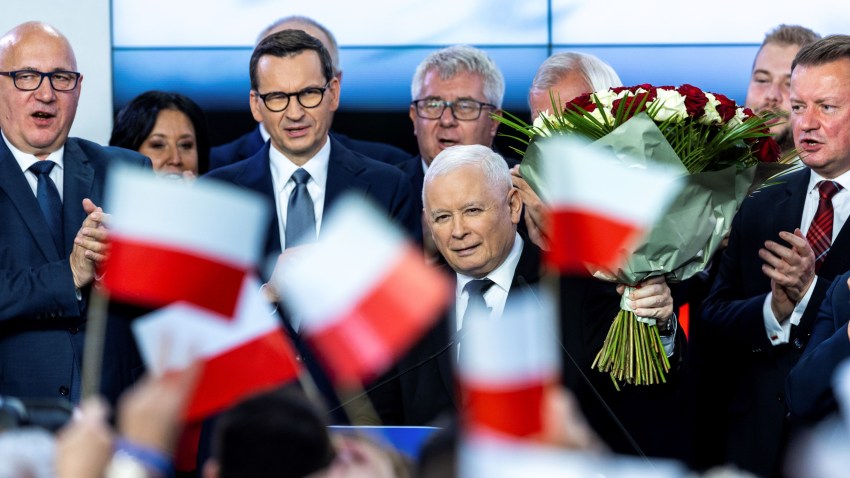Even before the votes from Poland’s elections on Oct. 15 had been fully counted, the recriminations within the Law and Justice party, or PiS, that has governed Poland since 2014 had already begun. With voters in Poland’s opposition-dominated large cities queuing for hours at polling stations, the possibility that PiS might suffer big losses was already evident early on. Yet as results began to emerge late in the evening, a stunning drop of support in the party’s former rural bastions triggered a ferocious debate within PiS about who was to blame for such a thorough defeat.
Until recently PiS had maintained tight party discipline, in contrast to tensions hampering the ideologically broad opposition coalition between former Prime Minister Donald Tusk’s centrist Civic Coalition and its center-right and left-wing allies. Now, with Tusk set to be the next prime minister, fissures are beginning to open up within PiS, as party leaders contemplate a loss of power they had not seen coming. They now find themselves facing tough questions about how far their ideological priorities, which combine social conservatism with far-right anti-immigrant populism, still match the concerns of most Polish voters.
These debates have begun to pit PiS factions close to party leader Lech Kaczynski, who continue to accuse Tusk of intending to sell Poland out to Germany, against those closer to President Andrej Duda, who warn that polarizing rhetoric will only further alienate voters who are tired of confrontational politics. At the same time, however, PiS has felt pressure from the upstart Konfederacja Party, whose blend of pro-market libertarianism and anti-migrant nativism has attracted support from younger right-wing voters. For PiS, that means a move toward the center could open up space for its populist rival on the right.

